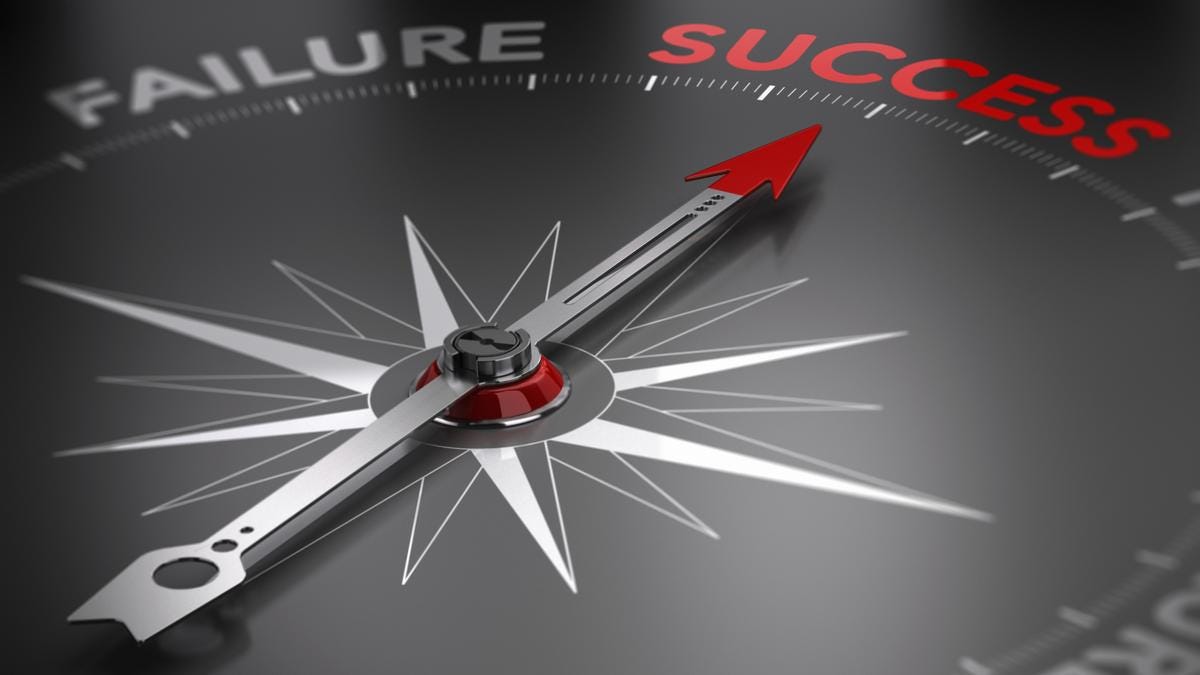Dietary Failure Is Not Defeat. Try Again and Overcome!
What’s your relationship with food like? Most people start diets and do good for a while, but as soon as they slip up, discouragement sets in and they soon give up entirely. It’s an almost universal approach, even with the right information to achieve success. But a setback does NOT mean the war is lost; it simply means you’ve lost a singular battle.
Take a deep breath, regroup and retry.
The problem is that most people see a single failure as a permanent thing. They fret about it, try to avoid it and question themselves every time it happens. But the simple truth is – no great success was ever achieved without failure. Take Edison for example. He took 10,000 attempts to create a light bulb and Dyson took 5,126 attempts to invent a bagless vacuum cleaner. In that context, failure is a necessary stepping stone to achieving dreams, not to become discouraged. The point is that life never gives us a guarantee of expected results.
Getting good at reading your body through nutrition as you wade through a sea of harmful refined foods takes time and effort; refinement of methods. It’s a game of both success AND failure. We should not lose confidence after failing.
My great concern is not whether you have failed, but whether you are content with your failure- Abraham Lincoln
The difference between failing and eventual success is finding the solution to the problem. With nutrition, one person will look at a cheat meal as a catastrophe, while another sees it as an opportunity to learn what went wrong. Even if you stumble for a second or third time - so what? Failure is where the lessons are, even up to the ninth tenth, or 100th attempt. But when you do succeed, you’ve conquered where most have given up, allowing failure to become a powerful teaching tool.
Learn From Your Mistakes
No one is immune to making mistakes – we are human, after all! But the difference between continued failure and eventual success is learning from our mistakes. If we simply carry on as before we're in danger of repeating the same errors and we don’t learn anything. This causes unnecessary stress and guilt.
Did you ever think that perhaps you can learn more from your temporary diet failure than from an immediate 10 pound weight loss? While failure can seem like an emotional kick in the gut at the time, it means your calculated risk, your time and effort, simply came up short. Now you need to figure out what went wrong and improve on the situation - that’s all. Be honest about your shortcomings to improve, to become better than before, healthier overall.
A simple weight loss does not automatically equate to good health. If you follow a cabbage soup diet you’ll lose weight, but you’ll also become unhealthy because you didn’t learn about proper nutrition. Examine what you eat in a critical way, decide what foods are really nutritious and what foods are emotional traps, and how many times you eat these foods. If you want your goal you have to be brutally honest and don’t cheat.
Now get more advice; perhaps from a nutritionist, from books, magazines etc. Remember, you can’t grow in knowledge if you stop learning, just as you won’t grow in dietary success without some setbacks. And that’s all they are - temporary (learning) setbacks that make you better.
Failure should never be considered an endpoint, and giving up is the only sure way to fail. Or as Denis Waitley once said:
“Failure should be our teacher, not our undertaker. Failure is delay, not defeat. It is a temporary detour, not a dead end. Failure is something we can avoid only by saying nothing, doing nothing, and being nothing.”
Watch the video below and tell me if you’re not inspired to fail more:
Another Way To Look At It
Now what if you have all the dietary information and motivation to start but yet find you still simply can’t overcome junk food cravings? Another trick is to break down your habits into pieces, somewhat like a chain smoker who can’t quit cold turkey.
A 5 pack daily smoking habit is almost impossible to overcome all at once. The urges will be overwhelming and will surely give setbacks time and again. So the best way to approach a radical habit is to break it gently, by giving the body time to adapt. Cutting out a few cigarettes daily is manageable and since the body still receives the habit, the mind doesn’t see it as a setback. There’s simply a smaller amount of the offending substance missing - it’s all good. Now set a timetable to drop a few cigarette’s weekly until you pare them down to nothing, and this gives your body the ability to fight urges, overcome gently and even detoxify as you overcome. You’ll find the end part of quitting is not hard at all.
Let’s say you have a sweet tooth. Approach quitting in the same manner to prevent constant setbacks. In this way, you won’t have to feel like you’re failing because you’re actually winning, albeit slowly.
“You build on failure. You use it as a stepping stone. Close the door on the past. You don't try to forget the mistakes, but you don't dwell on it. You don't let it have any of your energy, or any of your time, or any of your space.” - Johnny Cash
It’s a technique I teach my clients all the time. I don’t allow moping about setbacks. If your goal burns brightly in your mind, go after it with all your effort. You come alive through remarkable effort and when you fail, it means you’re doing something, you’re becoming better. Still think that one dietary setback is a huge issue? Now go ahead and try again!






